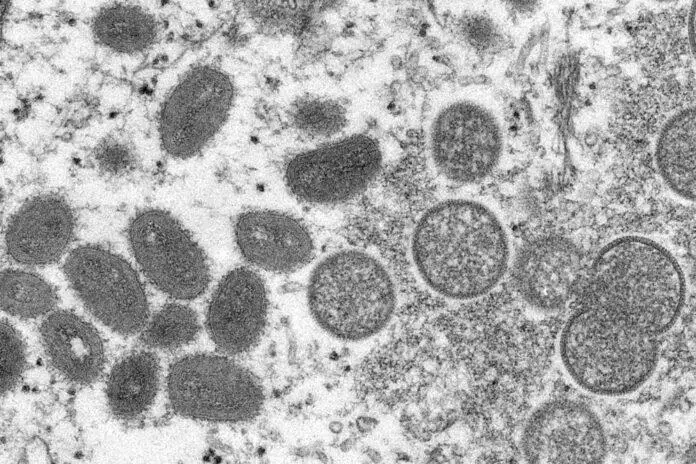New clues are coming out about the recent emergence of monkeypox, a rare virus typically found in West Africa. It has recently been seen in countries all over Europe, and cases have been confirmed in the US and Canada.
The CDC is closely monitoring the spread of the “rare but potentially serious viral illness” that manifests with flu-like symptoms and a rash all over the body, but often around the genitals.
Monkeypox also causes enlarged lymph nodes and “pox,” which are fluid-filled blisters on the body. The fatality rate is less than 1% and the illness usually resolves in 2-4 weeks.
In the UK, the World Health Organization (WHO) declared an emergency last week due to the spread of the virus, predicting that the confirmed case count of 20 last week could double to 40 or more, according to the Times of London.
So far, the WHO has documented more than 90 cases of monkeypox in at least a dozen countries, including Canada, Spain, Israel, France, Switzerland, the US and Australia. Denmark announced its first case today, Portugal updated its total number of cases to 37, Italy reported one additional infection and Britain added 37 more confirmed cases.
Although the outbreak is small at the present time, it is growing, and health authorities are concerned because of the disease’s rarity. Agencies are investigating how the virus is spreading.
One clue that researchers are finding is that even though monkeypox is not classified as a sexually transmitted disease, there appear to be clusters of incidence of the virus in gay and bisexual men. The CDC stresses that other people can also be at risk, and the outbreak is not limited to gay men.
It was reported Monday by the Associated Press that a leading adviser to the World Health Organization, Dr. David Heyman, said the outbreak may be “a random event,” caused by sexual behavior at two recent, crowded public party events (raves) in Spain and Belgium.
Dr. Heyman, former head of the WHO’s emergency department, said, “We know monkeypox can spread when there is close contact with the lesions of someone who is infected, and it looks like sexual contact has now amplified that transmission.”
Four confirmed cases linked to sexual activity at public raves have been reported in Germany. They are possibly associated with a Gay Pride event in the Canary Islands, which had 80,000 people gathered, and another event in Berlin.
Dr. Heyman said he doesn’t believe this outbreak will trigger widespread transmission.
At a public session on Monday, WHO officials said that the outbreak can be contained, and affected victims should not be stigmatized, as the virus can also be transmitted via heterosexual sexual contact.
The Joint United Nations Program on HIV/AIDS (UNAIDS) called out to media, governments, and others to respond without bias to LGTBI individuals.
Matthew Kavanagh, UNAIDS Deputy Executive Director, said, “Stigma and blame undermine trust and capacity to respond effectively during outbreaks like this one. Experience shows that stigmatizing rhetoric can quickly disable evidence-based response by stoking cycles of fear, driving people away from health services, impeding efforts to identify cases, and encouraging ineffective, punitive measures.”
In West or Central Africa, people typically catch the virus from animal bites. Transmission between humans is rare and requires contact via body fluids (saliva, pus or cough droplets).
Although named “monkeypox,” the virus does not come from monkeys. The name originated from an outbreak in 1958 of the virus in monkeys used in scientific research. The virus more likely spreads via squirrels and rodents.
The CDC continues to monitor the outbreak and provide information on monkeypox and travel advisory recommendations on its website.

